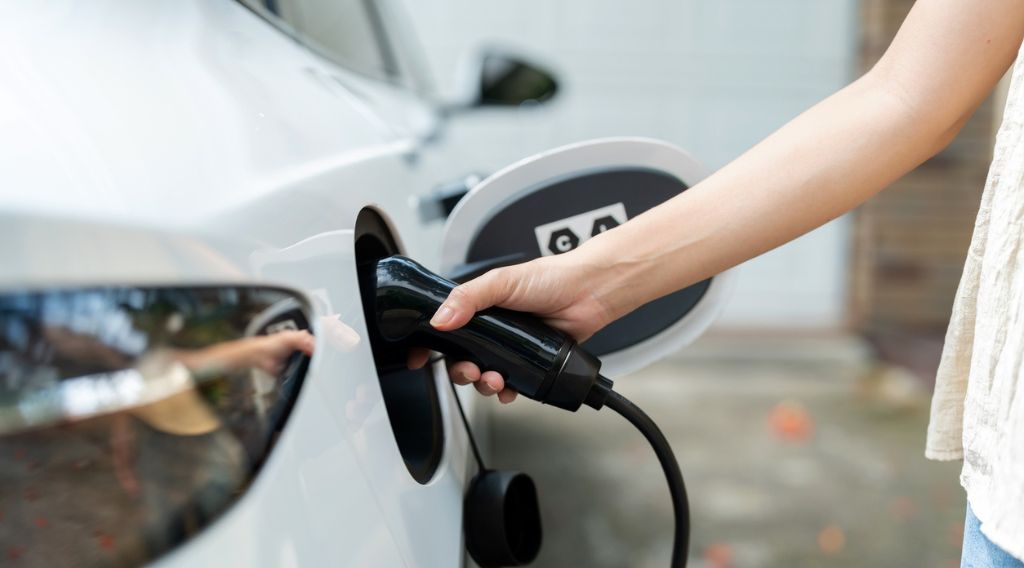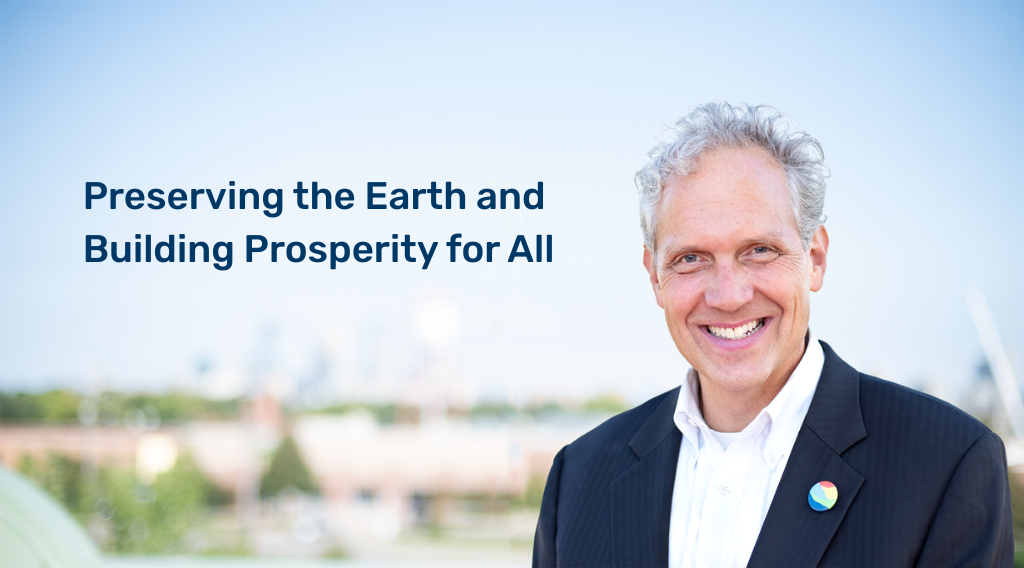Minnesota Future Fuels Coalition applauds state working group’s efforts ahead of unprecedented legislative push this year
February 1, 2024, MINNEAPOLIS— The Minnesota Future Fuels Coalition applauds a diverse working group headed by Minnesota state agencies for cementing and detailing support for a first-of-its-kind statewide clean transportation standard.
The Clean Transportation Standard Work Group released a new report and recommendations today underscoring the “transformative emissions reduction” and other benefits to Minnesota becoming the first Midwestern state to issue such a standard.
“Today’s strong backing by the working group is a compelling and unprecedented step toward what we hope will be historic passage later this legislative session of the first statewide Clean Transportation Standard in the Midwest,” said Brendan Jordan, vice president for Transportation and Fuels at the Great Plains Institute, which is facilitating the Minnesota Future Fuels Coalition.
The working group, whose members include representatives from the Minnesota Future Fuels Coalition, outlined several key reasons why the Minnesota state legislature should approve a standard this session. That includes the “transformational ability of a CTS to lower carbon pollution from transportation and agriculture,” and as a comprehensive solution to “advance electrification, continue improvement and evolution of biofuels, and create a space for new fuels.”
It would also offer Minnesota an opportunity to lead the nation. “States around the country are watching Minnesota,” the working group report said. “Creating a CTS here could be model for the Midwest, tailored to the unique needs of our state and region.”
Such a standard should be tailored to Minnesota, including recognizing that “climate smart agricultural and forestry practices can contribute to lower carbon intensity fuels, which is critical given the importance of these industries to Minnesota,” the working group found. A Clean Transportation Standard would also foster economic development initiatives tied to clean fuel and electrification investment and continue to offer engagement with a diverse and broad range of statewide interests.
As part of a 2024 transportation budget deal, state agencies convened the first-ever working group to study and address information gaps and opportunities for a standard requiring a reduction of the carbon intensity of Minnesota’s transportation fuels by at least 25 percent below 2018 levels by 2030, 75 percent by 2040, and 100 percent by 2050.
The consensus among the working group members was that a potential standard approved by the state legislature this session could strike a balance between those ambitious carbon reduction targets and a program that can achieve compliance.
“Even if the goal posts of the carbon reduction targets shift during the legislative process, what is important is that Minnesota can and should lead the building of a national model that can not only address climate change but also support jobs and drive economic growth in Minnesota’s rural communities,” Jordan said.
The Minnesota Future Fuels Coalition and environmental advocacy partners Minnesota Environmental Partnership and Friends of the Mississippi River were among those leading the push for creating the working group.
Clean transportation standards, otherwise known as clean fuels policies and low carbon fuel standards, are in place in California, Washington, and Oregon, and statewide legislation is pending in Illinois, Michigan, New Mexico, New York, and Vermont.
A bill introduced last year by Minnesota Senator Scott Dibble (DFL) and Representative Jeff Brand (DFL), the Clean Transportation Standard Act, directed the commissioner of the Minnesota Pollution Control Agency to establish a statewide clean transportation standard requiring the same carbon intensity reduction requirements the working group was tasked to consider.
The bill from Senator Dibble and Representative Brand is more ambitious than previous versions introduced in the state legislature and would create the strongest existing or pending statewide clean transportation standard in the nation, reflecting both a changing political environment and the recognition of the need to combat heat-trapping emissions from the transportation sector.
Unlike many pieces of energy legislation that focus on just one technology and define winners in terms of energy options, their Clean Transportation Standard Act lets the market and innovation drive change. This flexibility leads to investment in a variety of alternative fuels, from electricity used in EVs to sustainable aviation fuel to lower-carbon liquid fuels that reduce emissions from gas-powered vehicles already on the road.
Supporters also include top charging infrastructure and EV providers ChargePoint, Tesla, and Rivian; the Alliance for Automotive Innovation, which includes global-leading automakers and their suppliers; biofuel advocates Renewable Fuels Association and American Coalition for Ethanol; Union of Concerned Scientists; Delta; Fresh Energy; and Conservation Minnesota.
About the Minnesota Future Fuels Coalition
The Minnesota Future Fuels Coalition, facilitated by the Great Plains Institute, is a broad coalition of stakeholders working together to implement the Minnesota Clean Transportation Standard Act, which is a clean fuels policy tailored to Minnesota. Coalition members include producers and marketers, electric utilities, environmental nonprofits, auto manufacturers, and agriculture and industry groups.
About the Great Plains Institute (GPI)
A nonpartisan, nonprofit organization, the Great Plains Institute (GPI) accelerates the transition to net-zero carbon emissions for the benefit of people, the economy, and the environment. Working across the US, we combine a unique consensus-building approach, expert knowledge, research and analysis, and local action to find and implement lasting solutions. Our work strengthens communities and provides greater economic opportunity through the creation of higher-paying jobs, expansion of the nation’s industrial base, and greater domestic energy independence while eliminating carbon emissions.
Media Contact:
Darren Goode
(202) 550-6619
STATEMENTS FROM SUPPORTIVE ORGANIZATIONS
Dan Bowerson, Vice President, Energy & Environment, Alliance for Automotive Innovation
“A Clean Fuels Standard will support Minnesota’s transition to vehicle electrification with point-of-purchase rebates and infrastructure investments. These are policies critical for Minnesota to achieve its electric vehicle goals while reducing emissions from vehicles already on the road by lowering the carbon intensity of gasoline and diesel fuel. Alliance for Automotive Innovation represents the manufacturers producing most vehicles sold today in the United States, so we’re grateful to have served on this important advisory committee and contribute to Minnesota’s clean energy future.”
Paul Austin, Executive Director, Conservation Minnesota
“Enacting a clean transportation standard as outlined by the working group would be a powerful next step to reduce climate pollution, improve the health of our air and water, and expand economic opportunity for communities throughout Minnesota.”
Margaret Cherne Hendrick, Senior Lead, Innovation and Impact, Fresh Energy
“Fresh Energy sees great potential to significantly reduce greenhouse gas emissions from Minnesota’s transportation and agriculture sectors through a Clean Transportation Standard. This type of market-based policy allows for the generation of credit revenue whose reinvestment in innovative solutions will spur transportation electrification, regenerative agriculture, and improve soil health as well as air and water quality.”
Whitney Clark, Executive Director, Friends of the Mississippi River
“The Clean Transportation Standard Working Group was a great opportunity for very diverse stakeholders to learn together about how a Minnesota standard could be tailored to our state’s unique needs. My organization came away really excited by the potential for this policy which, if carefully crafted, could drive truly transformative changes that reduce greenhouse gas emissions in both the transportation and the agricultural sectors while significantly reducing pollution from agricultural landscapes.”
Kent Hartwig, Director of State Government Affairs, Gevo
“A clean transportation standard, as outlined by these recommendations, presents a significant opportunity to promote the production and utilization of sustainable aviation fuels in Minnesota. Additionally, it creates a market-based incentive for agricultural practices that minimize the carbon footprint of the feedstock used in the production of renewable fuels.”
Brian Werner, Executive Director, Minnesota Biofuels Association
“As a member of the Minnesota Clean Transportation Standard Work Group, the Minnesota Biofuels Association welcomes the finalization of the report on implementing a performance-based program to reduce the carbon intensity (CI) of transportation fuels in Minnesota. We continue to believe that a fuel- and technology-neutral CTS program offers important market opportunities to Minnesota’s renewable fuel industry. A Minnesota-specific CTS program that taps into the strength and ingenuity of our state’s agriculture and bioprocessing sectors is a program that can fully meet its targets and support communities in Greater Minnesota.”
Rick Horton, Executive Vice President, Minnesota Forest Industries
“Minnesota Forest Industries is very pleased that the report recognizes the potential for wood-based biofuels to dramatically reduce carbon emissions from the transportation sector. The CTS could create a pathway to reduce dependence on fossil fuels by using sustainable, renewable wood to meet society’s transportation needs.”
Pete Aube, Chair, Minnesota Forest Resources Council
“Clean transportation fuels refined from wood that is sustainably harvested from Minnesota forests present an alternative to traditional petroleum-based gasoline, diesel, and aviation fuel. In addition to providing economic opportunities, clean transportation fuels using woody biomass reduce carbon emissions and support climate smart forestry and healthier forests in Minnesota. The Minnesota Forest Resources Council applauds and supports the Clean Transportation Standard Working Group for its vision and recommendations that promote use of woody biomass feedstocks to produce low carbon renewable biofuels in our state.” – Pete Aube, Chair of the Minnesota Forest Resources Council
LesLee Jackson, Environmental Justice Advocate including with Minneapolis Northside Green Zones
“I see strong potential for a clean transportation standard to have a positive impact on issues I care about, such as improving air quality in North Minneapolis and creating more incentives for regenerative agriculture.”
Jeremy Martin, Senior Scientist and Director of Fuels Policy, Union of Concerned Scientists
“A Clean Transportation Standard as outlined in the work group’s recommendations would reduce emissions from transportation fuels in Minnesota, support low-carbon biofuels and renewable electricity, and pave the way for a cleaner transportation future. This first clean fuels standard in the region would not only deliver real benefits to Minnesota residents but also provide a science-based model to states around the country to reduce carbon pollution from the highest-emitting sector in our economy.”
Colin Cureton, University of Minnesota Forever Green Initiative
“A Minnesota CTS would be a major boost for scaling production of novel low-carbon feedstocks such as winter camelina and pennycress. These ‘cash cover crops’ have significant co-benefits for water quality, soil health, and farmer profitability, and are being developed here by the internationally-leading University of Minnesota Forever Green Initiative. A Minnesota CTS would ensure these crops are not just developed but also launched and scaled in Minnesota. This policy could be the single largest policy lever for Minnesota to scale cover crop adoption over the next few decades.”



